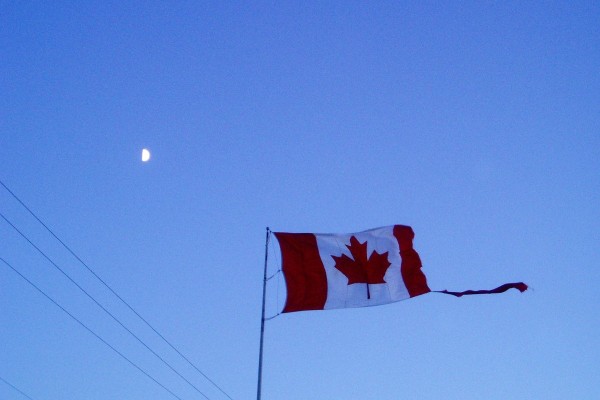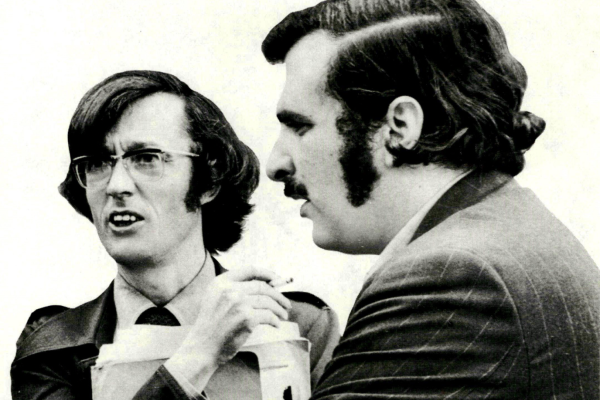-

Germany’s new right: Trading on nostalgia for past prosperity in an age of uncertainty
This long-read offers a different explanation for the hard-right surge in Germany. It shows that German unification in 1990, signalling the triumph of liberal democracy and the onset of neoliberal globalization, unleashed a new form of nationalism—Deutschmark nationalism—which, after mutating into export nationalism for a while, became the ideological seed for the AfD.
-
_01_600_400_90_s_c1.jpg)
Trudeau government gets failing grade on tax fairness
While Prime Minister Justin Trudeau portrayed himself as a progressive champion, his policies failed to meet the big challenges of our time. Tackling the affordability, housing, and climate crises head-on will require bold action—half-measures are not enough. Progressive parties must put forward bold solutions that can meet these challenges head-on.
-

With Trump’s tariffs, it’s time for a more self-reliant Canada
By raising tariffs unilaterally, Trump will grossly violate USMCA, the former NAFTA. It’s no use doing deals with Trump, that he will break. Instead, let’s dust ourselves off and make things by Canadians for Canadians. Canada was tossed out of similar arrangements before. We picked ourselves up, became more self-reliant and thrived. Can we do so again?
-

Responding to Donald Trump with a popular democratic project for Canada
The unfolding climate catastrophe, growing inequality, the disintegration of the country’s social safety net, and the rise of profoundly reactionary yet increasingly viable political forces at home and abroad make it imperative for Canadian socialists to develop strategies to begin to substantively challenge Canadian elites at the national scale.
-

The Waffle Manifesto: For an Independent Socialist Canada
In 1969, a caucus of NDP members known as the Waffle organized to promote a socialist and nationalist agenda, which included the replacement of US private ownership of Canadian industry with Canadian public ownership. Many of the core ideas that the Waffle stood for were first developed and debated in CD—by the very people who eventually emerged as Waffle leaders.
-

Here’s one easy trick to combat foreign political interference in our media
Postmedia has largely replaced local news coverage with paid content, including a long-running campaign for the Canadian Association of Petroleum Producers, and under new CEO Andrew Macleod ordered its editors to hew even harder to the right politically. We are thus in effect paying foreign-owned media to feed us propaganda, an irony perhaps not lost on Justice Hogue.
-

The foreign interference report’s great anticlimax
The conclusion that one can draw from this is that by helping discredit Canadian institutions, the false accusations and exaggerated claims that have been made about foreign interference appear to have done far more damage than the actual interference itself, whose impact was “limited,” “marginal” and “largely ineffective,” according to the Hogue report.
-

Canadian hands in Congo drip with the blood of millions
Congo has been wracked by more than a century of violent colonization and imperialism resulting in millions of deaths—and Canada has supported it all, or at best stayed silent while watching it happen. The federal government’s strong support for the Kagame government today contradicts Canada’s purported principles and should be seen as a stain on our global reputation.
-

To respond to Trump’s tariffs, Canada should nationalize its oil industry
There is no doubt that Trump’s tariff threats pose a very real problem for Canada. The US accounts for almost two-thirds of Canadian trade volumes, and virtually all of Canada’s oil exports go south. But responding to this threat with anything but capitulation will require a significant break from the decades of policy that opened the door to foreign ownership.
-
_800_600_90_600_400_90_s_c1.jpg)
Amazon closures an act of economic terrorism
Terrorism is defined as an act of violence, usually harming innocents, that is motivated by a political or ideological goal. By that standard, write economist Jim Stanford, Amazon’s decision to shut all seven of its warehouses (euphemistically called ‘fulfilment centres’) in Québec, to avoid unionization at one of those warehouses, is an act of economic terrorism.



